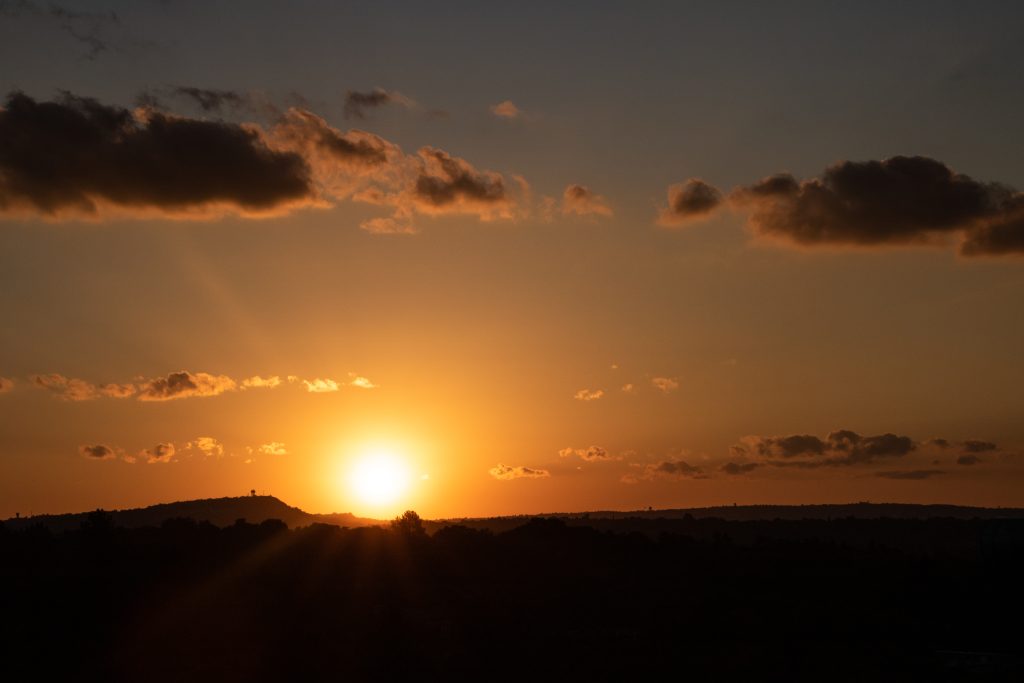Nyhet 2022-03-04
Development in Southern Africa (ENG)
Covid 19 update – Southern Africa is currently in the tail end of the Omicron (4th) wave and has relaxed most of the restrictions imposed as measures to limit the spread of the virus. There were far fewer deaths during the 4th wave and vaccination rates are slowly rising with most countries in the 20-30% rate. Some countries like Zimbabwe have started giving the 3rd boost, although the challenge of low uptake for first jabs persists. Industry and commerce as well as the education sectors are slowly returning to ’new normal’ amidst the known infrastructural concerns that render following WHO guidelines difficult.
Climate change – This region continues to be adversely affected by the impact of climate change. Tropical storm Ana hit Mozambique in mid-January which resulted in the deaths of at least 100 people and thousands displaced. The ripple effects of the ripple effects of the storm were also felt in neighboring Zimbabwe and South Africa. Beyond the short-term humanitarian needs of these communities, the storm has affected the expected agricultural yield, critical infrastructure while contributing to the displaced population. This comes at a time when some cyclone Idai affected households are yet to be resettled. The threats of more cyclones like Batsirai, which hit Madagascar a few days before Ana, highlights the continued vulnerability of the region to climate change. As always, the brunt of all this is borne by communities living in extreme poverty, particularly women.
A number of our partner organisations are part of the Africa Climate Justice Group (ACJG), which saw the urgent need to organize the progressive flank of the broadly defined ”climate justice’ movement in Africa. For about two years now, ACJG has strived to strengthen the voices of Africans and demands for systemic change from capitalism and its twin forces of racism and patriarchy that created the pandemic. In 2022, ACJG aims to build on the successes of 2021 to ensure that Africa defines the process of attaining climate justice. This year is very significant to all Africans as we look forward to another African COP (COP 27). The Annual General Strategy Meeting will be held on 4 – 5 March.
Extractivism – In Cabo Delgado, Mozambique, insurgent violence continued with attacks in some districts contributing to surviving civilians, and many from nearby villages fleeing, in search of safer places to live. The conflict expanded to Niassa, another province in the north of Mozambique. Niassa presents an ideal rear base for the insurgents to reorganise and develop a new supply line through Malawi and Southern Tanzania. Total Energies plans to resume work in Cabo Delgado, to assure shareholders that the suspension was temporary and that there is ”sustainable security”, recognising the grievances behind the conflict – linked to lack of jobs nor benefit from the gas projects. Total announced that the government must be seen to deal with the grievances, and local people must see some benefit before that project can resume.
Although the SADC forces mandate to restore peace in Northern Mozambique is likely to be renewed in the interim, it is unlikely to last longer than 12 months due to the SADC’s limited ability to fund the mission. Total Energies, however, expects the Rwandan contingent to remain in place, protecting key liquefied natural gas (LNG) sites in Palma district, for the next 12 months at least. Mozambique is one of the countries most affected by climate change and is looking to further gas exploration. However, local and global movements are calling for an end of the exploitation of fossil fuels. The scenario gets worse as recently COP26 failed to curb fossil fuels, with the European Commission having announced the intention to classify gas as a ”sustainable investment”.

In Namibia the campaigners continue to put pressure on the government as ReconAfrica continues to forge ahead with its drilling plans. On January 20, 2022 the company announced plans to begin the second 2D seismic acquisition program covering a further 500 km, and plans to drill 3-6 additional wells in the Kavango region during 2022 without public consultation as per the law. Similarly, Zimbabwe is scaling up its prospecting for oil and other minerals in pursuit of the USD12 billion mining industry by 2023. The communities continue to bear the costs, as is the case with the granite mining example in Mutoko. https://dailynews.co.zw/investigation-debunks-defamation-story-on-chinese-mining-investment-in-zimbabwe/
South African activists (including our partners – WoMin and groundWork) organised several protests against Shell’s seismic testing plans along the eastern coastline, resulting in the court ruling which halted the plans, due to consultation process being flawed. The decision was seen as a temporary relief while awaiting the final ruling. The energy minister condemned the activists, saying that they want to deprive Africa of energy resources. https://www.bbc.com/news/world-africa-59809821
Xenophopia Politics – The attack on migrants in South Africa continues, especially after the South African government announced that it will not renew about 180 000 permits/visas of Zimbabweans that were under the Zimbabwe Exemption Permit programme. An attempt by ZEP holders to overturn the government’s decision through court interdict, was dismissed.Code name “Operation Dudula” (meaning to push out), this movement has vowed to push migrants out of South Africa, and replace them with locals, because migrants are considered to be “taking their jobs”, especially in the hospitality (tourism), truck driving industry and informal trading. The youth unemployment in SA has continued to escalate to 70%. While covid 19 and the unrest in July exacerbated a historical problem, and government’s lack of political will in addressing the issues, Operation Dudula sees migrants as the root cause of unemployment and lack of service delivery. Political parties like Action SA, EFF and IFP have expressed their support of “Put South Africans First” mantra.